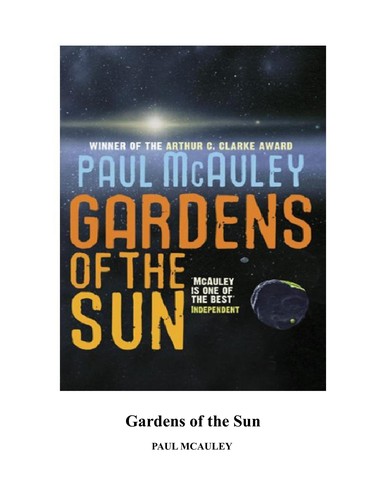This short story came with a Martha Wells bundle I bought last year.
Reviews and Comments
Technical nonfiction and spec fiction. She/her. Melbourne, Australia. Generation X. Admin of Outside of a Dog. BDFL of Hometown (Mastodon) instance Old Mermaid Town (@futzle@old.mermaid.town). Avatar image is of a book that my dog tried to put on their inside.
My rating scale: ★ = I didn't care for it and probably didn't finish it; ★★ = It didn't inspire but I might have finished it anyway; ★★★ = It was fine; ★★★★ = I enjoyed it; ★★★★★ = I couldn't put it down.
This link opens in a pop-up window
Deborah Pickett started reading Home: Habitat, Range, Niche, Territory by Martha Wells
Deborah Pickett finished reading Network Effect by Martha Wells (The Murderbot Diaries, #5)
Deborah Pickett commented on Network Effect by Martha Wells (The Murderbot Diaries, #5)
A noun phrase that Murderbot uses frequently in this book is “humans and augmented humans” and it’s really annoying me, in the same way that certain people use the phrase “women and trans women”.
“Humans” is enough.
Deborah Pickett finished reading Exit Strategy by Martha Wells (The Murderbot Diaries, #4)
Deborah Pickett started reading Exit Strategy by Martha Wells (The Murderbot Diaries, #4)
Deborah Pickett finished reading Gardens of the sun by Paul J. McAuley
I like McAuley’s writing style, but this second book in a series of (checks) four is so rambling. Spotting the acknowledgments at the end and aha—it’s made from several short stories. Don’t do that.
The story also grates in that it’s already antiquated with respect to agender people, and comes across as a bit unpleasant. This is always the danger of writing about the near future: you may get overtaken!
I have access to the third book in the series but I’m not sure I want to commit the time.
Deborah Pickett finished reading One Good Turn by Witold Rybczynski
Found this one under a pile and pushed on to finish it. It's a bit less structured than I imagined, and doesn't really go much into the mechanics of why screws work better than other devices. I finished wanting more from this short book.
Found this one under a pile and pushed on to finish it. It's a bit less structured than I imagined, and doesn't really go much into the mechanics of why screws work better than other devices. I finished wanting more from this short book.
Deborah Pickett rated A Prayer for the Crown-Shy: 3 stars

A Prayer for the Crown-Shy by Becky Chambers (Monk and Robot, #2)
After touring the rural areas of Panga, Sibling Dex (a Tea Monk of some renown) and Mosscap (a robot sent …
Deborah Pickett finished reading A Prayer for the Crown-Shy by Becky Chambers (Monk and Robot, #2)
Well, that ended suddenly.
I learned from the acknowledgments that Chambers wrote these two books during the early pandemic. I have a sinking feeling that they were a product of the zeitgeist of social distancing and lockdowns and that the opportunity to complete this story may now have passed.
Deborah Pickett rated A Psalm for the Wild-Built: 4 stars

A Psalm for the Wild-Built by Becky Chambers
It's been centuries since the robots of Panga gained self-awareness and laid down their tools; centuries since they wandered, en …
Deborah Pickett finished reading A Psalm for the Wild-Built by Becky Chambers
Chambers is easy to read, and fortunately this one is not as Californian as some of her prior work. A Psalm for the Wild-Built is short, and clearly just the first episode in the Monk and Robot series.
I do wish that she had an editor, though, or at least a proofreader. Sometimes Chambers uses a word which I can only conclude is a malapropism—In this book, "erstwhile" (where I think she meant "estimable"? It's hard to know). Also one sentence which uses "they" pronouns for Mosscap, who is referred to throughout with "it".
Chambers is easy to read, and fortunately this one is not as Californian as some of her prior work. A Psalm for the Wild-Built is short, and clearly just the first episode in the Monk and Robot series.
I do wish that she had an editor, though, or at least a proofreader. Sometimes Chambers uses a word which I can only conclude is a malapropism—In this book, "erstwhile" (where I think she meant "estimable"? It's hard to know). Also one sentence which uses "they" pronouns for Mosscap, who is referred to throughout with "it".
Deborah Pickett started reading A Psalm for the Wild-Built by Becky Chambers
Deborah Pickett rated Before the Coffee Gets Cold: 3 stars

Before the Coffee Gets Cold by Toshikazu Kawaguchi
In a small back alley in Tokyo, there is a café which has been serving carefully brewed coffee for more …
Deborah Pickett finished reading Before the Coffee Gets Cold by Toshikazu Kawaguchi
This was fine. I didn't really get emotionally attached to any of the characters, and the premise was getting a bit worn by the end.
This was fine. I didn't really get emotionally attached to any of the characters, and the premise was getting a bit worn by the end.





